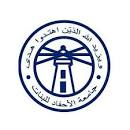
Course information: (basic description, general information, teaching overview, required equipment, and preparation, etc.
The main aim of this course is to introduce students to the normal and pathological function of the immune system. The focus is on the explanation of physiological processes that enable normal functioning of certain subtypes of immune cells in a non-specific and specific immune response, as well as on the explanation of pathophysiological mechanisms leading to disorders of normal immune processes, as well as on the possibilities for therapeutic action to the immune response. Teaching tasks imply enabling the student to connect basic knowledge of immunology and pathophysiology of the immune system with the teaching of physiology and pathophysiology, microbiology and parasitology, pathology, infectious disease, oncology, and vaccination.
Course content:
Overview of Immunity. Antigens. Tissue Cells and Organs of the Immune System. Major Histocompatibility Complex Molecules. Immune Recognition. Cellular Immunity. Non-specific Immunity. Complement. Humoral Immunity. Immune Response Regulation. Interaction of Immune Cells. Action on Immune Response. Cytokines and Chemokines. Immune Response to Tumor. Immunodeficiency and AIDS. Immunotolerance and Autoimmunity. Immunity to Infections. Tissue and Organ Transplantation. Immunological Hypersensitivity.
The main aim of this course is to introduce students to the normal and pathological function of the immune system. The focus is on the explanation of physiological processes that enable normal functioning of certain subtypes of immune cells in a non-specific and specific immune response, as well as on the explanation of pathophysiological mechanisms leading to disorders of normal immune processes, as well as on the possibilities for therapeutic action to the immune response. Teaching tasks imply enabling the student to connect basic knowledge of immunology and pathophysiology of the immune system with the teaching of physiology and pathophysiology, microbiology and parasitology, pathology, infectious disease, oncology, and vaccination.
Course content:
Overview of Immunity. Antigens. Tissue Cells and Organs of the Immune System. Major Histocompatibility Complex Molecules. Immune Recognition. Cellular Immunity. Non-specific Immunity. Complement. Humoral Immunity. Immune Response Regulation. Interaction of Immune Cells. Action on Immune Response. Cytokines and Chemokines. Immune Response to Tumor. Immunodeficiency and AIDS. Immunotolerance and Autoimmunity. Immunity to Infections. Tissue and Organ Transplantation. Immunological Hypersensitivity.
- Teacher: Raiyed Adeel
- Teacher: Reham Gadin
- Teacher: Randa Hamza Ibrahim Gindeel
